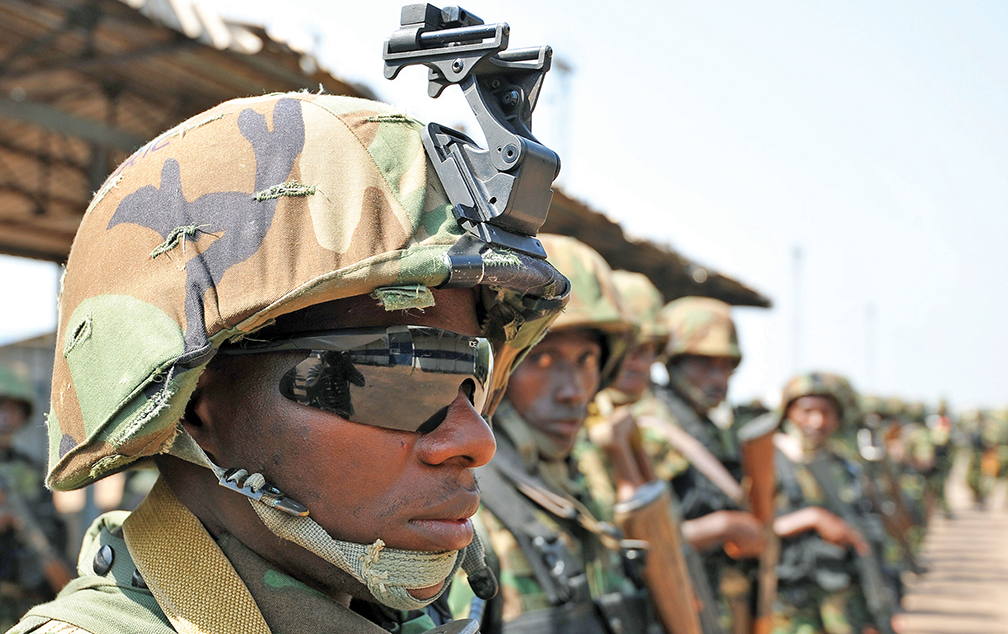
Maj. Gen. Cyprien Ndikuriyo of Burundi’s Ministry of Defense and War Veterans spoke on June 24, 2014, at the U.S. Africa Command Academic Symposium at the Kofi Annan International Peacekeeping Training Centre in Accra, Ghana. The following is a portion of his remarks, edited and translated from the original French.
After a recent period of internal instability, Burundi has embarked on an important political transition with the goal of re-establishing the conditions for durable peace.
At the same time, the security environment in Burundi itself, as well as the whole region of Central Africa and the world, is changing. New security challenges affecting the state and the people of Burundi are emerging that require new responses. This will require the defense forces of Burundi and other security actors to adapt to the environment, which is both unstable and unpredictable, so they can effectively perform their roles and responsibilities.
To achieve this, Burundi has decided to conduct a strategic study to revise its national defense system. The approach that Burundi has adopted is influenced by the emergence in recent years of a larger concept of security at the international level.
The review has three principal objectives:
- First, develop an understanding shared by the government and the agencies charged with providing security of the current and future security concerns in Burundi, the needs of the population, and the principal challenges the country faces. It is in the interest of all parties to develop a common vision.
- Second, clarify the roles and specific missions of the National Defense Force (NDF) to respond to these needs and challenges and determine how its role can be coordinated better with other actors in the security sector.
- Third, identify the institutional and operational capacities necessary to allow the NDF to efficiently accomplish its roles and missions.
The approach must be global with the point of departure being a multidimensional concept of defense that has protecting the population as its fundamental principle. It must also be holistic, with the participation of citizens in the design, formulation and implementation of programs, as well as monitoring and evaluation. It must be inclusive, implicating all stakeholders in the security sector, within the government as well as stakeholders outside of the government. Finally, it must be transparent, with discussions held in an open manner and the widest possible diffusion of the results at each step of the process.
There is no guarantee of success in security sector reform. All the comparable experiences have been struck with reversals and failures. The essential thing is to reduce the risks. This, among other reasons, is why we must insist on the political will, the strategic framework and the rapid rollout of reform.
Even as Burundi has finished its defense review, the task of implementation has only just begun. This process will be long, complex and politically difficult. To maintain the momentum for change in the security sector, the government must take ownership of the recommendations made in the review, including the documents of the National Strategy for Defense and the white paper. They must clearly communicate a vision for change to the NDF, the other security agencies and the population, and prepare for implementation.
However, the key success factor remains national ownership, because without ownership of the reforms, the risk is that the country will not capitalize on this opportunity. Ownership by the public is the true gauge of durability.

